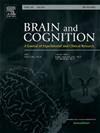SARS-CoV-2感染急性后后遗症患者认知疲劳的神经影像学标志物
IF 1.4
3区 心理学
Q3 NEUROSCIENCES
引用次数: 0
摘要
持续认知疲劳(CF)是 SARS-CoV-2 感染急性后遗症(PASC)中报告最多的症状,但人们对其潜在的神经基础知之甚少。这项试验性研究考察了非典后遗症患者和非典后遗症患者在执行疲劳任务时的 fMRI 脑激活模式。我们假设,PASC 患者在疲劳网络中会出现与 CF 相关的大脑激活变化。参与者包括 10 名患有 PASC 和顽固性 CF 的成年人,以及 10 名年龄和性别匹配的健康对照者。在进行fMRI检查时,使用2-back工作记忆任务来诱导CF。根据疲劳视觉模拟量表(VAS-F)的测量,PASC 患者在整个任务过程中都表现出更大的疲劳。在疲劳任务中,疲劳网络中的大脑激活与CF增加之间的关系在组间没有差异。不过,随着报告的 CF 值增加,PASC 组疲劳网络内外有更多区域被激活。大脑激活与 2-back 分数之间的关系在不同组之间存在差异,PASC 组显示出更多的额叶激活。研究结果表明,PASC 和 CF 患者在完成要求较高的认知任务时可能需要付出更大的脑力,这反映在他们需要招募更广泛的脑区网络。本文章由计算机程序翻译,如有差异,请以英文原文为准。
Neuroimaging markers of cognitive fatigue in individuals with post-acute sequelae of SARS-CoV-2 infection
Persistent cognitive fatigue (CF) is the most reported symptom in Post-Acute Sequelae of SARS-CoV-2 Infection (PASC), but little is known about its underlying neural basis. This pilot study examined fMRI brain activation patterns during a fatiguing task in those with and without PASC. We hypothesized that individuals with PASC would show changes in CF-related brain activation within fatigue network. Participants were 10 adults with PASC and persistent CF and 10 age- and gender-matched healthy controls. The 2-back working memory task was used during fMRI to induce CF. Patients with PASC reported greater CF, as measured using a Visual Analogue Scale of Fatigue (VAS-F), throughout the task. The relationship of brain activation in the fatigue network to increased CF during the fatiguing task did not differ between groups. There were, however, more areas inside and outside the fatigue network that were activated in the PASC group as reported CF increased. The relationship between brain activation and scores on the 2-back did differ between groups, with the PASC group showing more frontal activation. Findings suggest that individuals with PASC and CF may need to exert greater mental effort during demanding cognitive tasks, reflected in recruitment of a broader network of brain regions.
求助全文
通过发布文献求助,成功后即可免费获取论文全文。
去求助
来源期刊

Brain and Cognition
医学-神经科学
CiteScore
4.60
自引率
0.00%
发文量
46
审稿时长
6 months
期刊介绍:
Brain and Cognition is a forum for the integration of the neurosciences and cognitive sciences. B&C publishes peer-reviewed research articles, theoretical papers, case histories that address important theoretical issues, and historical articles into the interaction between cognitive function and brain processes. The focus is on rigorous studies of an empirical or theoretical nature and which make an original contribution to our knowledge about the involvement of the nervous system in cognition. Coverage includes, but is not limited to memory, learning, emotion, perception, movement, music or praxis in relationship to brain structure or function. Published articles will typically address issues relating some aspect of cognitive function to its neurological substrates with clear theoretical import, formulating new hypotheses or refuting previously established hypotheses. Clinical papers are welcome if they raise issues of theoretical importance or concern and shed light on the interaction between brain function and cognitive function. We welcome review articles that clearly contribute a new perspective or integration, beyond summarizing the literature in the field; authors of review articles should make explicit where the contribution lies. We also welcome proposals for special issues on aspects of the relation between cognition and the structure and function of the nervous system. Such proposals can be made directly to the Editor-in-Chief from individuals interested in being guest editors for such collections.
 求助内容:
求助内容: 应助结果提醒方式:
应助结果提醒方式:


